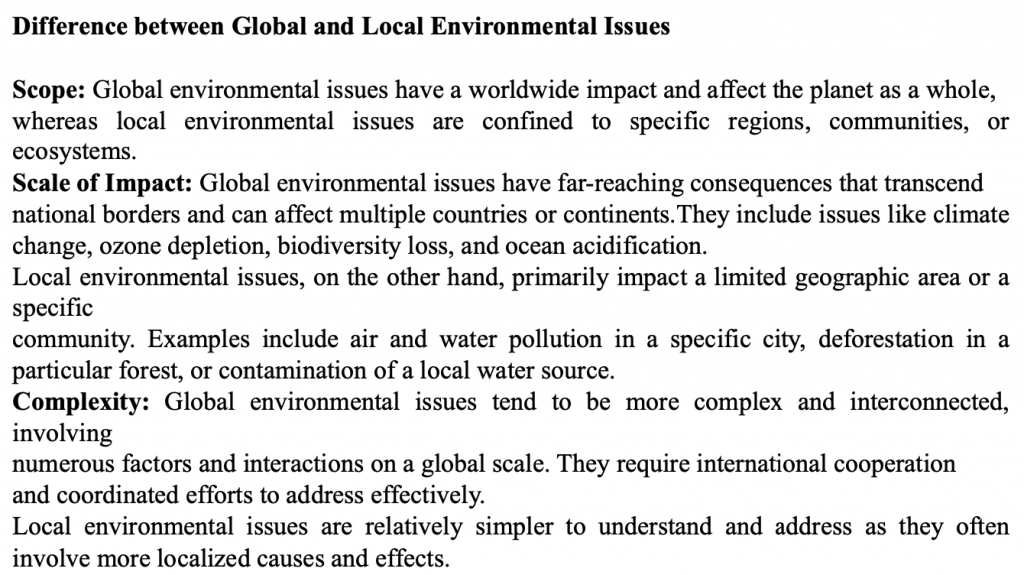Global and Local Environmental Issues
Summary:
The document “Global and Local Environmental Issues” differentiates between global and local environmental concerns, highlighting the varying scopes, impacts, complexities, responsibilities, governance, and associated timeframes. Global environmental issues, such as climate change, ozone depletion, biodiversity loss, and ocean acidification, have widespread impacts that cross national borders and require international cooperation for effective mitigation. These issues are complex and interlinked, and demand coordinated efforts globally, involving international agreements and organizations like the United Nations Framework Convention on Climate Change (UNFCCC) and the Convention on Biological Diversity (CBD).
Local environmental issues, in contrast, primarily affect specific regions, communities, or ecosystems. Examples include air and water pollution in certain cities, deforestation in particular forests, and contamination of local water sources. These issues are generally more straightforward to address as they often involve more localized causes and effects, falling under the jurisdiction of regional or local authorities. Solutions for local environmental problems usually involve community-based initiatives and local regulations.
The document also emphasizes the interconnectivity between global and local environmental issues. Local ecological problems can contribute to broader global challenges, and addressing local issues can create positive effects worldwide. This highlights the importance of understanding and addressing environmental issues at both international and local levels, recognizing the distinct characteristics of each while acknowledging their interdependence.
Excerpt:
Global and Local Environmental Issues
Difference between Global and Local Environmental Issues
Scope: Global environmental issues have a worldwide impact and affect the planet, whereas local ecological issues are confined to specific regions, communities, or ecosystems.
Scale of Impact: Global environmental issues have far-reaching consequences that transcend national borders and can affect multiple countries or continents. They include climate change, ozone depletion, biodiversity loss, and ocean acidification.
Local environmental issues, on the other hand, primarily impact a limited geographic area or a specific
community. Examples include air and water pollution in a specific city, deforestation in a particular forest, or contamination of a local water source.
Complexity: Global environmental issues tend to be more complex and interconnected, involving
numerous factors and interactions on a global scale.


Reviews